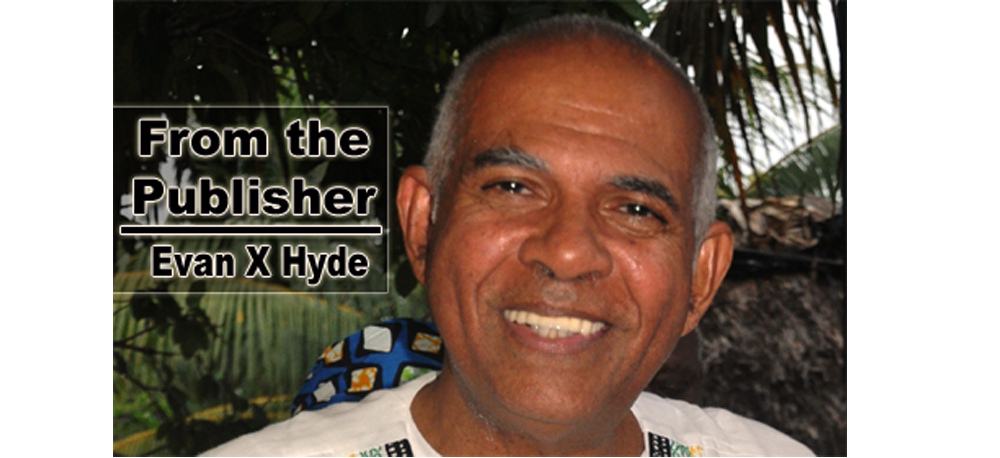Telemedia or Digi (or whatever its name is) ended up costing Belizean taxpayers hundreds of millions of dollars about ten years ago. In the House of Representatives on Tuesday afternoon this week, the Collet area representative, Hon. Patrick Faber (UDP), who is so highly educated that I believe he is a candidate for a Ph.D., sought to do a historical sketch of the Belizean telecommunications saga, beginning in 1989 when the then UDP Prime Minister, Rt. Hon. Manuel Esquivel, privatized the company then known as BTA (Belize Telecommunications Authority), which became BTL (Belize Telecommunications Limited.)
I think Hon. Faber made a mistake when he said that Lord Michael Ashcroft had gotten control of telecommunications in Belize in 2003; and I feel that, while he did mention the Jeffrey Prosser debacle, Hon. Faber did not say a word about the Intelco adventure, which ended up with PUP Prime Minister, Rt. Hon. Said Musa, and his Finance Minister, Hon. Ralph Fonseca, leaving the Intelco entrepreneur, Glenn Godfrey, high and dry around 2004 or so. Lord Ashcroft reigned supreme.
You know, when I was a youth/young man growing up in British Honduras/Belize in the 1960s, it was often that my friends and I would lament situations in Belize which we would compare, unfavorably, with the superior operations that addressed similar situations in the United States of America. There was no television in Belize then, but we were able to listen to American radio stations in the night, because the AM broadcast technology of that time had radio waves travelling all the way to Belize from huge American cities like St. Louis, Houston, and Little Rock (Arkansas). If you had a shortwave radio, you could listen to the U.S. Armed Forces radio station both night and day.
Our critical perspectives on Belizean situations were not fair to our leaders and authorities, because the U.S. was so much larger, richer, and more experienced than our little country. The U.S. declared independence in 1776; we Belizeans managed to become a self-governing British colony in 1964.
In America, there are some very wealthy institutions, called foundations, such as the Rockefeller Foundation and the Ford Foundation, which make substantial financing available to researchers and writers after they submit appropriate requests to study important topics and publish their findings.
So that, if we were in America, there would have been appropriate literature available for Belizeans to read concerning the very, very important history of telephones and telecommunications in Belize.
The most important point I want to make in this essay is that Lord Ashcroft, according to my sources, gained control of our telecommunications on the final day of the PUP administration which lost power on June 30, 1993. P.M. Esquivel, and his chief adviser, Net Vasquez, had constructed BTL in 1989 with a guard rail against foreign predators which was called “the golden share.” The golden share, a control mechanism, was supposed to remain in the hands of Belizeans forever and ever.
I believe Hon. Faber should dig deeper and find out more about how and when the deadly deal was done, how the betrayal was planned and executed.
There have been a few cases where important research and publication have been done by Godfrey Smith, such as when he wrote the authorized biography of the national hero, Rt. Hon. George Price, and by Mr. Lawrence Vernon, formerly Belize’s chief librarian, whose work is extensive and invaluable. In the matter of election history in post-1950 Belize, Lady Myrtle Palacio’s work is also worthy of praise.
But, the story of Belizean telecommunications has to be told from the time when telephones were a small and almost insignificant department under the jurisdiction of the Post Office. This was during the 1960s. I believe the independent BTA was established in the middle or late 1970s.
Since telecommunications ended up with Belizean taxpayers being battered and gouged, even though the transformation from Cable & Wireless to BTA was a tremendous achievement which featured the praiseworthy work of Belizean workers and executives, it is very sad, to my mind, that the story has not been told in bold and confirmed detail from beginning to now.
In America, there is collusion in critical areas of knowledge between universities and the industrial private sector. What happened in the case of telecommunications in Belize was that the Belizean masses were basically ignorant about the industry, and the elected politicians of Belize, both PUP and UDP, got away with murder. On both sides of the political spectrum, our politicians and their cronies have become multimillionaires because we, the people, were ignorant about the real. We should have been informed by our scholars along the way. And our scholars should have been focused and financed.
We “wuz” robbed, Belizeans.

